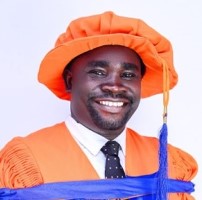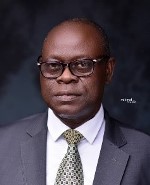Amidst global warming and climate
change: A review
FEATURED PAPER
By Christian Osita Ifediora, PhD
Department of Estate Management
Delta State University of Science and Technology
Ozoro, Nigeria
and
Fidelis Ifeanyi Emoh, PhD
Department of Architecture and Planning
Faculty of Engineering and the Built Environment
University of Botswana
Gaborone, Botswana
Abstract
As the world navigates or faces the challenges of global warming and climate change, the real estate industry/sector is poised to playing a crucial role aimed at mitigating its impacts while creating sustainable wealth. In order to help investors, developers, and governments tackle the issues with climate change and global warming, this papers looks at the relationship between sustainable real estate investment and wealth generation. This paper looks at the emerging trends as well as innovations in sustainable real estate and green building technologies. In addition are designs that are energy-efficient as well as climate-resilient construction. The paper also addressed the issues pertaining to regulatory and policy frameworks that is necessary in the support of sustained real estate practices while it highlighted successful best practices. This paper no doubt provided a comprehensive framework for sustainable real estate investment and wealth creation while it contributed to a more resilient and environmentally conscious built environment.
Keywords: Climate change, global warming, real estate investment, sustainability and wealth creation.
1.0 Introduction
Global warming and climate change is almost becoming a household name as far as sustainable real estate investment is concerned. Both global warming and climate change are topical issues that must not be toiled with in creating wealth as their impact or effect may make or mar man’s effort in sustainable real estate investment. Sustainable real estate investment and wealth creation may be seen as an approach to investing in real estate that focuses on long-term financial performance and environmental sustainability. It has been noted that sustainable development whether seen as sustainable investment is inconceivable without healthy real estate market that provides facilities where human activities thrive while helping to improve the public spaces in cities and towns, (Trinkūnas, 2018). Sustainable real estate investment and wealth entails creation of value for investors and for the environment. It requires commitment into investment in properties with low energy consumption, the ones that meet green building standards as well as use renewable energy sources. Through the investment in sustainable real estate, investors can create wealth, reduce carbon footprint as well as support the development of sustainable communities.
Sustainable property investment is based on a vision of sustainability and on finding out how to best get there, it encompasses four main investment strategies and can be applied to direct investment as well as indirect property investment, (Royal Institute of Chartered Surveyors [RICS], 2008). It could be a powerful tool that is dedicated for the creation of wealth and combating global warming. There is possibility of real estate investments been made in energy-efficient buildings as well as renewable energy projects that can reduce emissions and promote sustainability. In green infrastructure projects Real estate investments can also be made that can help in the reduction of urban runoff as well as improve air quality in addition to also creation of jobs and provision of economic opportunities in the local area. In addition, real estate investments can help to fund urban green spaces, which provide many benefits including cooler temperatures, cleaner air, and improved mental and physical health.
The idea behind sustainability cannot be separated from wealth creation, when the principles of sustainability are imbibed more wealth would be created and even real property investment will likely be sustained in the real terms. Sustainable property investment as investing in pursuit of sustainability, or investing in pursuit of greater durability, adaptability, usability and efficiency of buildings and the building stock, leading to enhanced productivity, well-being, and economic benefit measured in terms of financial, natural, manufactured, human and social capita, (RICS, 2008). They further argued that a call for research-based best practice and thoughtful consideration is necessary and timely considering the entirety building life-cycle including construction, acquisition, use, management, maintenance, decommissioning and demolition as well as the upstream and downstream processes before and after. RICS, (2008) further stated that sustainable property investment requires a new mind set which may well be entirely different from current ‘best practice’ in design (what you build), construction (how you build it), property investment and management.
More…
To read entire paper, click here
How to cite this paper: Ifediora, C. O. and Emoh, F. I. (2024). Sustainable real estate investment and wealth creation amidst global warming and climate change: A review; PM World Journal, Vol. XIII, Issue IX, September. Available online at https://pmworldlibrary.net/wp-content/uploads/2024/09/pmwj145-Sep2024-Ifediora-Emoh-sustainable-real-estate-investment-amidst-global-warming.pdf
About the Authors

Dr. Christian O. Ifediora
Ozoro, Delta State Nigeria
![]()
Dr. Osita Ifediora holds a PhD in Estate Management with specialisation in project management from Department of Estate Management, Nnamdi Azikiwe University, Awka, Nigeria. He has over 7 years teaching experience. Currently, he is a lecturer in Department of Estate Management, Delta State University of Science and Technology, Ozoro.

Prof Fidelis Ifeanyi Emoh, PhD
Awka, Nigeria
![]()
Prof Fidelis Ifeanyi Emoh, PhD is a Professor of Real Estate & Valuation in the Department of Estate Management, Nnamdi Azikiwe University, Awka, Nigeria with over 40 years varied experience in teaching, research, administration and professional consultancy.









